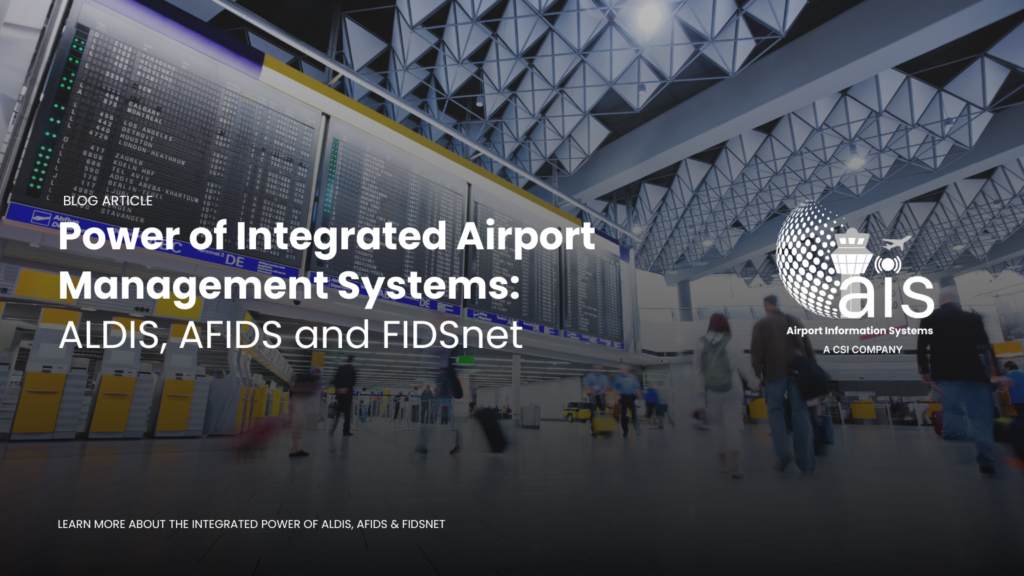- What is Aeronautical Billing?
- Benefits of Aeronautical Billing Systems
- Best Practices for Implementing an Efficient Aeronautical Billing System in Airports
- Impact of Aeronautical Billing on Air Operations Management
- Impact of Aeronautical Billing on Airport Financial Sustainability and Growth
- Aeronautical Billing Integration with Airport Management Systems
- Benefits of Installing AIS Aeronautical Billing
- Conclusion
In the complex world of aviation operations, efficient financial management is crucial for the success of airports and airlines alike. Aeronautical billing, a specialised process within the industry as a part of the Commercial Management System (CMS), plays a pivotal role in ensuring accurate revenue generation and reducing airport revenue leakages, transparent financial transactions, and streamlined operations. It deals with the process of calculating and collecting revenues from various operations like landing fees, parking fees, terminal usage fees, navigation charges, and fuel services. It can help ensure proper revenue generation, efficient financial management, and effective airline relationship management. This effective system helps generate more revenue and leaves the customers with a pleasant experience. As a result of this, the customer-airline relationship is also fostered and ends up developing client loyalty.
In this article, we will explore the fundamentals of aeronautical billing, its significance in aviation management, and how it benefits airports and airlines worldwide.
What is Aeronautical Billing?
Aeronautical Billing is defined as the process of generating and managing invoices for all the different services that airports provide to airlines and other users. This includes services, such as landing and parking fees, fuel charges, and passenger facility charges.
The process itself covers domains like generating invoices, calculating charges based on agreed-upon rates and fees, and tracking payments.
Aeronautical billing is a primary process of managing revenue leaks in airports. The accuracy of invoices is essential to ensure that both airports and airlines are paying the correct amounts. There are a number of factors that can contribute to invoice inaccuracies, such as incorrect flight data, missing or incorrect charges, and human errors. Accurate billing and collection procedures ensure that airports receive the necessary funds to maintain and upgrade infrastructure, provide quality services, meet operational requirements, and improve billing efficiency.
Benefits of Aeronautical Billing Systems
Aeronautical Billing systems automate invoice management processes in Airports including invoice generation, fund collections, calculating surcharges and peak costs, and reporting miscellaneous costs. This can save airports a significant amount of time and resources.
Aeronautical billing system ensures transparency among stakeholders and investors by providing detailed revenue insights, cash flow, and itemized invoices. This enables airlines to understand their revenue and expenses from a bird’s eye view, ensuring fair and accurate financial transactions.
Beyond revenue reports and transparency, Aeronautical billing systems offer valuable insights into the demand and utilization of airport services. It allows airports to identify trends, peak periods, and demand fluctuations and this information facilitates strategic resource allocation, allowing airports to optimize infrastructure, staffing, and operational efficiency.
Airport Systems providers like Airport Information Systems or AIS offer Aeronautical Billing systems, which are accurate and highly configurable charging of movements and authorised users can manage rates, discounts, surcharges, block bookings and more.
Here are some major benefits for airports using AIS’ Airport Landing Dues Information Systems:
● Save Administration Overhead
● Streamline Invoicing Processes
● Reduce Manual Calculations and Media Gaps
● Invoice More Frequently and More Accurately
● Revenues Realisation
● Reduce Clearing Efforts
● Manage Digital Invoices
● Save IT and Operational Costs
● Business Intelligence with Detailed Financial Insights
Best Practices for Implementing an Efficient Aeronautical Billing System in Airports
Simplifying the intricate process of collecting and reconciling flight data, and flight plans, per the guidelines of Aeronautical Information Publication (AIP) is of utmost importance. Implementing an efficient Aeronautical Billing System in airports requires the adoption of best practices. Here are some recommendations to achieve this:
● It is essential to send real-time notifications at the time of invoice generation. Email, SMS, and Dashboard notification are common ways to ensure customer satisfaction.
● Payment receipts are to be generated in PDF or HTML mail and should be sent to the customers at the time of payment. This needs to be done in the case of credit and debit notes generation too.
● Customers should have online portal access so that they can view, print or download invoices at any time. Statement of Account should also be available to the customers along with the invoice.
● Tracking your receivables and keeping a record of items like Statements of Accounts, Statements of Invoices, Statements of Movements, and more is crucial.
● All the employees should have a customized dashboard based on their roles and access rights.
Impact of Aeronautical Billing on Air Operations Management
Seamless passenger flow, up-to-date information, and air traffic management are the keys to successful airport functioning. The Air Transport IT Insight 2019 by SITA has highlighted some future trends that we can expect in airport operations management.
Self-Service
Self-service solutions like passenger check-in kiosks, automated boarding gates, baggage drop, and smart tracking.
Facial Recognition
Programs in biometrics ID management have become more main-scale.
Artificial Intelligence
An increase in the use of AI as virtual agents and chatbots for advertising, status information, personalization, and brand perception improvement.
Impact of Aeronautical Billing on Airport Financial Sustainability and Growth
An optimized billing system can help the company’s revenue witness an upward trend. Airline Retailing could increase in worth to be at 40 billion dollars by 2030. However, if airlines fail to realize the full value of retail, they are going to lag.
Every year, approximately 2.9 billion airline booking payment transactions take place worldwide and are valued at around 1 trillion dollars. Airlines should have a plan to move strategically so that they can improve payments to prevent further disintermediation.
This can be done by increasing the value for customers and meeting their expectations, by making the payment journey more convenient. Payments are a crucial link between airlines and their clients. Airlines could benefit from making the payment experience easier which leads to increased bookings and increased purchases of ancillary services.
Here are some practices which can help airlines to seize the opportunity for financial growth:
● Increase customer reach and conversion by improving user experience and payment conversion.
● Ancillary services should be made accessible through the different points of the customer journey to increase incremental revenue.
● Encourage customers to use payment methods that can help reduce payment costs and optimize fees.
● Analyze customer data to set loyalty programs. Implement flexible exchange policies and easier refunds.
Apart from growing the revenue, Aeronautical invoicing systems helps manage the cashflows. Payments can be accepted in cash or in any other currency. The billing system can calculate the aeronautical fee to issue an invoice based on:
● Aircraft registration.
● Parking time.
● Airport point of departure and landing.
● Times of entry or departure.
Non-aeronautical revenue is managed easily through accounting systems, business intelligence, payrolls, and revenue from ground handling services.
Aeronautical Billing Integration with Airport Management Systems
Aeronautical Billing provides a streamlined process for calculating and collecting fees from different customers. An automated billing process reduces errors and delays, while at the same time increasing efficiency and cash flow.
This gives the company some valuable time to manage its airport systems and improve infrastructure along with other initiatives. Features like inventory management, pricing optimization, revenue forecasting, and performance analysis help the company to understand customer behaviour, optimize its commercial offerings, and increase revenue.
Benefits of Installing AIS Aeronautical Billing
Airport Information Systems (AIS) offers the ALDIS system to our clients which includes accurate and highly configurable charging of movements. It gives flexibility to ensure that every user with predefined and customizable roles gets specific access to their portal. ALDIS can calculate standard rates, flat rates, operator charges, and more.
Our product suite has helped various airports across the globe streamline their operations and display systems. ALDIS can calculate and credit different configurable variants including:
● Landing and Parking fees
● Fuel
● Passenger Tax
● Miscellaneous Fees
● Target Incentives
● Email Invoicing
● Discounts/Surcharges, and more.
Conclusion
Aeronautical billing plays a crucial role in the efficient management of aviation operations. It can accurately calculate charges, issue transparent invoices, and ensure prompt revenue collection, giving airports the ability to sustain financial stability, improve resource allocation, and enhance the overall passenger experience. Using updated aeronautical billing systems that can integrate seamlessly with airport management systems can unlock numerous process improvements and automate key financial operations in Airports to achieve long-term success in the ever-evolving aviation industry.
The ALDIS system by AIS has achieved successful implementation in more than thirty airports globally. Our primary objective is to provide clients with an unparalleled experience and exceptional convenience when it comes to delivering efficient airport services for passengers. Airport Information Systems has helped airports around the world to streamline their operations and display systems, resulting in a more efficient and effective airport experience for passengers. AIS is a company under the portfolio of Constellation Software (TSE: CSU), listed on the Canadian Stock Exchange.
Interested to know more about Aeronautical Billing and other AIS products?



Pingback: FIDSNet at Airports Transforming Air Travel Experience On-Ground - Airport Information Systems - AIS
Pingback: Integrated Airport Management Systems: ALDIS, AFIDS & FIDSNet
Pingback: ATC and Air Traffic Control Administration System - Airport Information Systems - AIS